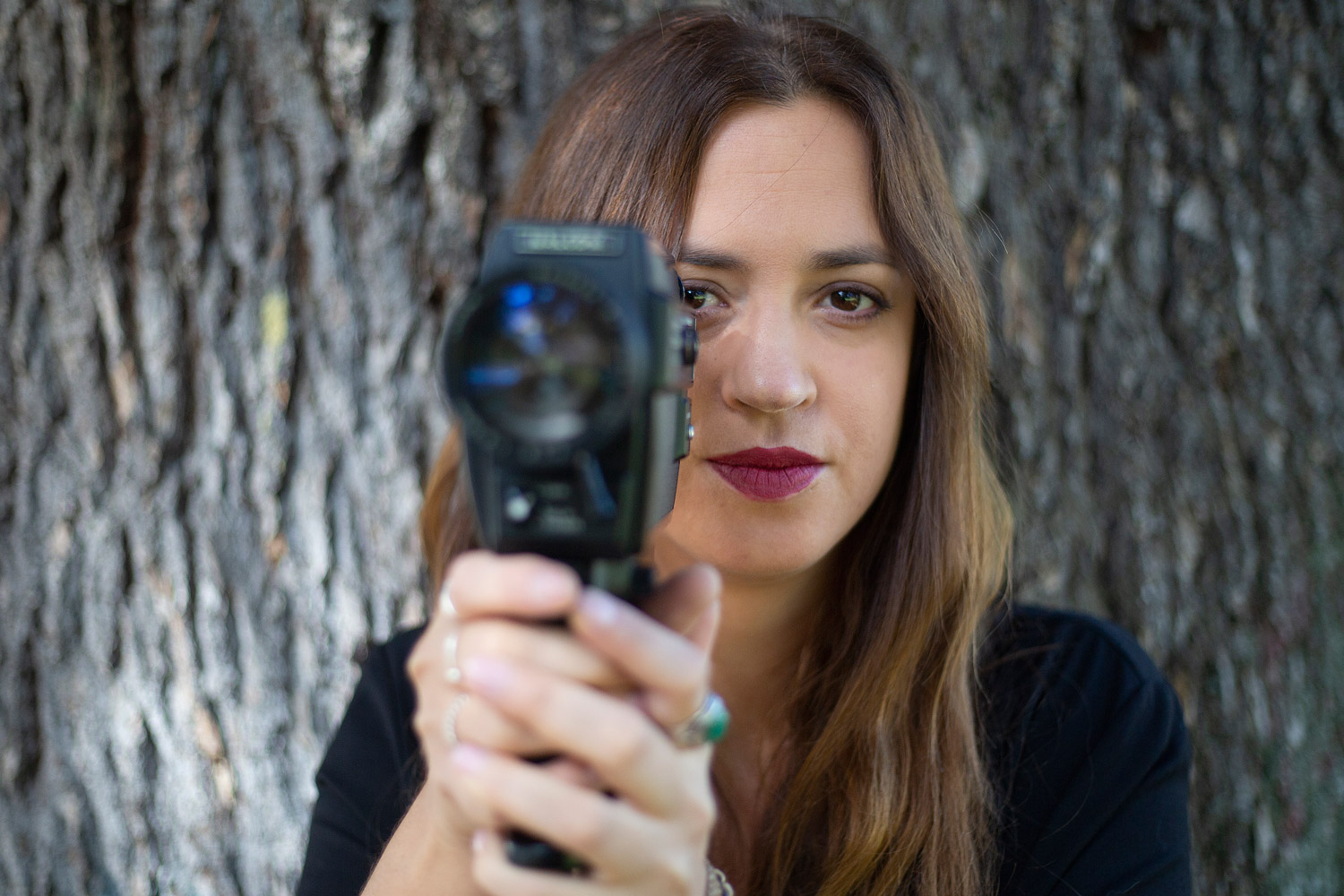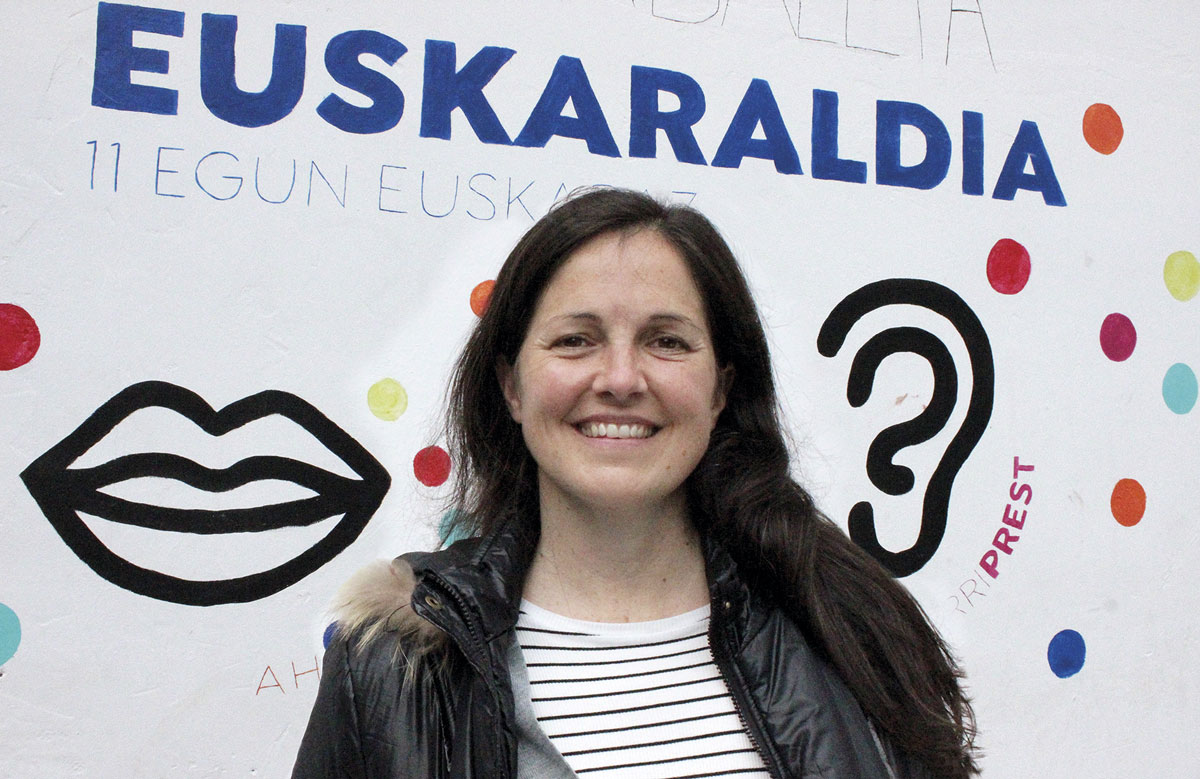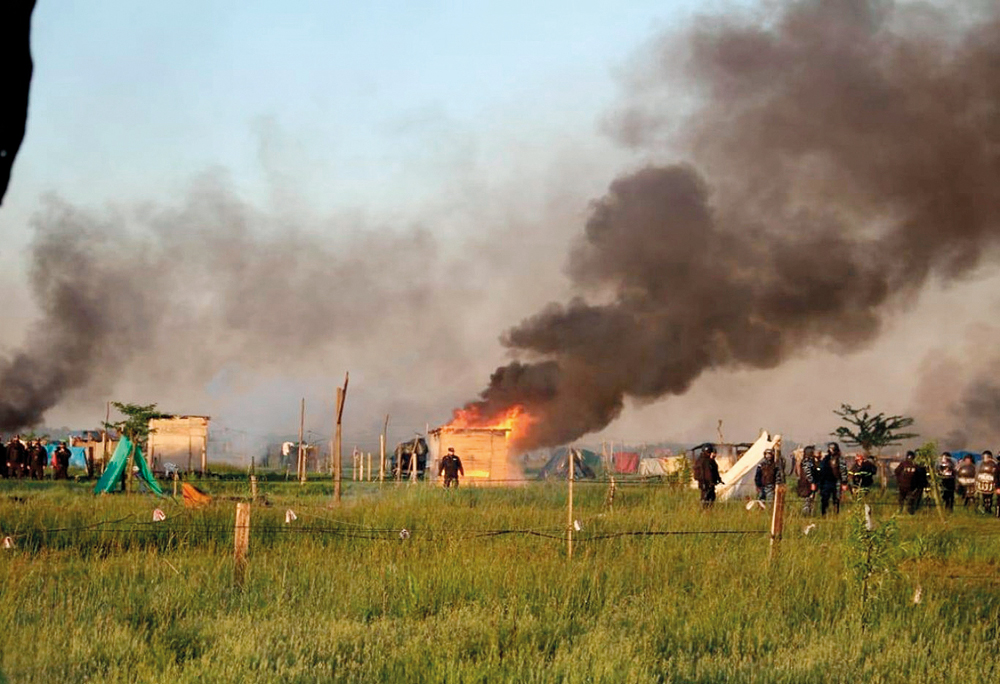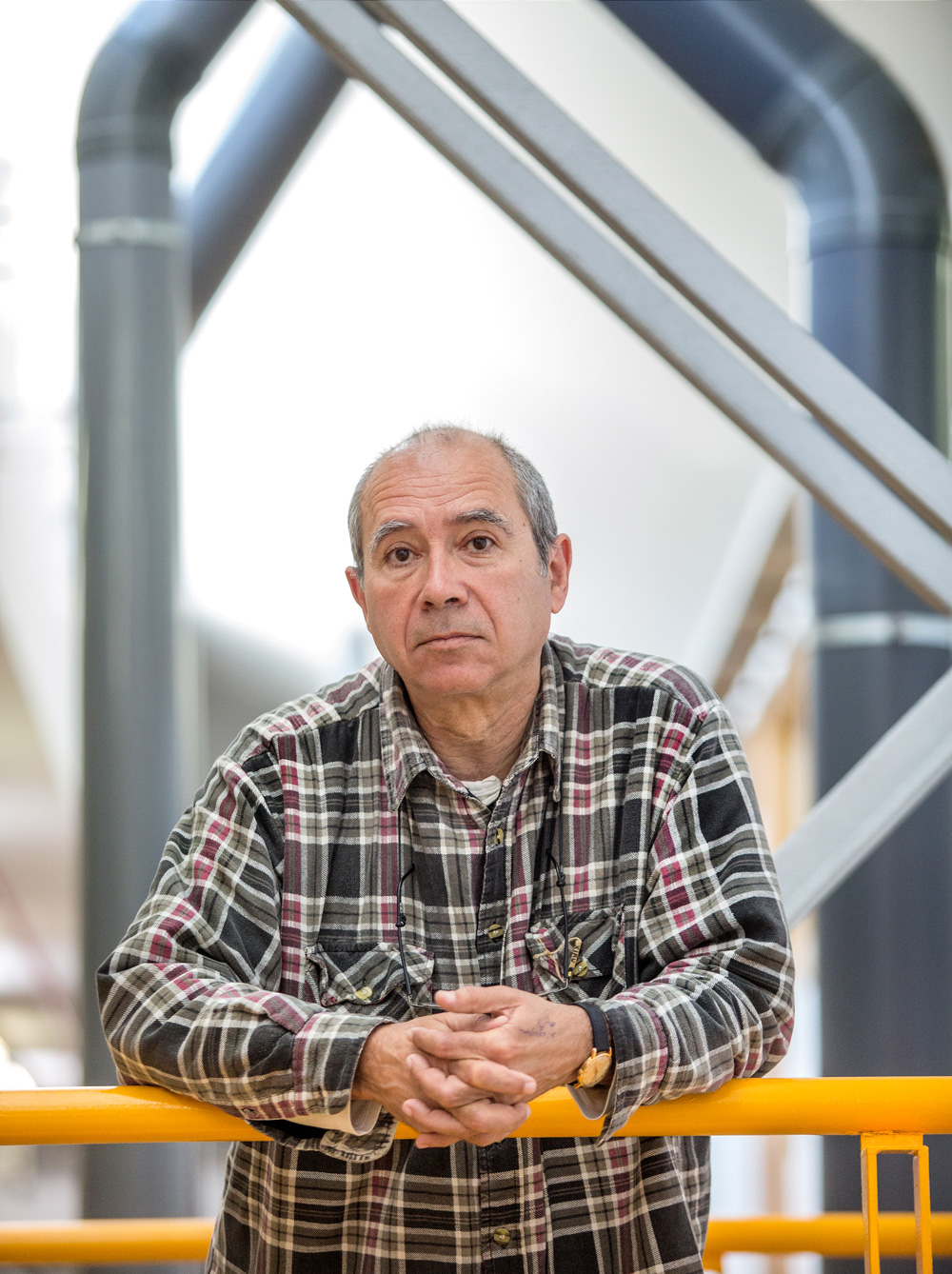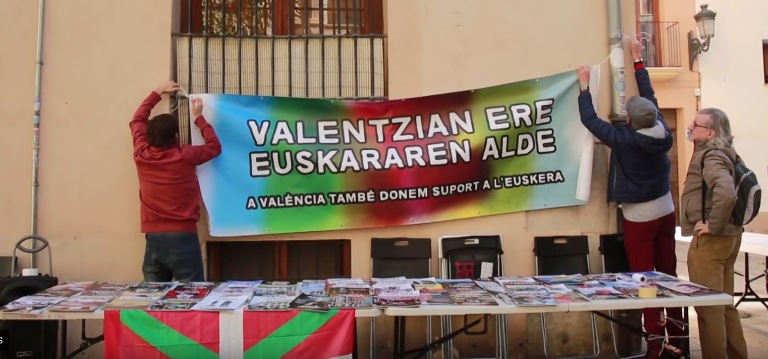"This story is from my father and mine, but it's also the story of all immigrants."
- Vince Juaristi (1969) has Elko (Nevada) and Bizkaia in his heart. His father, Joe, was born in Lekeitio, but today he lives in Elkora. In the book Back to Bizkaia (UNP, 2011), Vince receives the visit of his father and son to Euskal Herria to meet his twin sister, whom he had not seen for years.
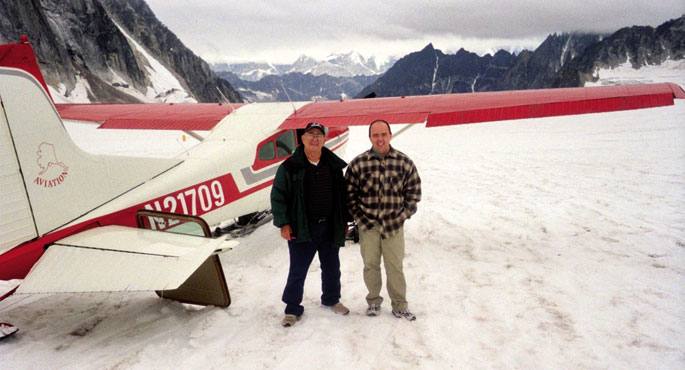
You were born in Nevada, in Elkon, but you have a great relationship with the Basque Country.
Since I was little I've had a lot of relationship with Euskal Herria; Elko has always been as close as him. I often heard about my grandparents and uncles: my father’s childhood in Lekeitio was often counted in my house or my mother arrived in Asarta, Navarra. He also heard about the Basque Country Jaia to be held in Elko, and about local dance, about aizkolaris and stone-throwers. When I was growing up, I knew nothing more than that. That was my world. It is a relationship that is known, internalized and maintained forever in youth.
What was the experience of parents when they came to the United States?
His father arrived in the United States in 1948, his mother Rose was born here, his mother came from Navarra, at the end of the 19th century. His father worked for several pastors: he made fire, he ate can, he fished fish in the streams and lived under the sky. I worked hard. I tried to save to make more money. Years later he moved to Elko. He served at the Star Hotel until he saved enough to buy that. There he met my mother. They sold the Star Hotel, married their mother and bought the BlueJay Bar. I was born while they were there. I remember old Basques kissing in a corner of the bar. My mother was chorizo and my father was serving beer and wine day and night. Once the last clients of the bar had left, when they were bursting, they closed the bar, picked up the cups and the tables and cleaned the room. They had to turn off the lights, lie down and get up early the next day to resume walking. Then we went to live a small herdship of pastors. The experience of the immigrant has always made me hard. The experience of my parents is not very different from that of other emigrants coming to America. They worked very hard because they believed in the American dream. This dream pushed them to undertake hard, wanting an easier and more prosperous future for their children. And I think they did.
He was recently with your father in the Basque Country.
I decided to take my father to the Basque Country for two reasons, one practical and the other nostalgic. His father had a twin sister, Anita. When I knew Anita's health was going to get worse, I thought we had to go. Anita died a year after our visit. On the other hand, I set out to feed my father's soul. He wanted to see the people and places of his childhood again, breathe the air of his homeland and remember the delights of life. Sometimes he would excite his father, laugh and cry, evoking old memories. When they saw their twin sister, they were silent, staring and smiling. They hugged and cried. The moment was so pure that it stayed forever in my memory.
How did you experience that journey?
A father wants the best for his son and vice versa. Experience with the father complements a journey. Ever since I was young, I've heard stories of my father's past and homeland about the birth in the hard times and the arrival in America. On this trip to Euskal Herria, the father has rounded the journey of his life and has seen Euskal Herria again with new eyes. As a son, my duty was to complete his life journey.
How did you think of writing a book of this visit?
It wasn't my intention to write books. During the trip, my father had to sleep a little bit, and in the meantime, I picked up in a notebook what I had seen, what I had heard, what I had felt. Instead of returning to Bizkaia, the title could be that of Lo kuluxken. When I returned to the United States, I managed the notes to keep them. From the memories, I extended what I saw and added new stories of the Basque child raised in Elkon. I soon completed an extensive draft of what would be Back to Bizkaia. I taught what was written to a childhood friend, also a Basque son, and he encouraged me to publish it. It was immediately approved by the University of Nevada Press.
Do you know Sweet Promised Land from the Basque American writer Robert Laxalt?
Yes, I read it recently. There are similarities between the two works, for example, the father's and the son's story at the father's place of birth. Laxalt had the opportunity to see his father in his hometown, like myself. However, the differences are wider. Back to Bizkaia is located in the Basque Country and in Spain, as well as in Elkon. The main line is the union between the father and the mother, two people separated for a long time. I also tell the visits to known and unknown peoples for my father, and I mean my life: working with the sheep, the Basque Jaia of Elko… This story is of my father and mine, but in many ways it is also the story of all immigrants.
What is your relationship with the families of the Basque Country?
When we were young we always made a call to the Basque Country at Christmas. His father called his sister. The phone would pass us and we would exchange a few words, but it wasn't the real communication. On the other hand, if we received the call from Euskal Herria, we knew there was some bad news coming. When the phone rang, it was her mother who usually responded. Due to the low connection, the volume increased and the language changed. Therefore, we knew right away that someone had called from Euskal Herria. Next, we knew death, accident or some serious illness. These were the little conversations they had for years until Facebook and e-mail appeared. I have been in the Basque Country four times, while, as far as I know, my families have not yet been in the United States. I would love to have them here!
Where do you feel from?
Hard question ... I am American, of Basque origin. I've never felt anything else. But we Americans are strangers in that respect. We feel American. We have a strong link with our country, a flag, a constitution ... But we also have to do with personal identity, with the countries where our family members came. We carry two identities, always, everywhere.
What presence does Euskera have in the family?
My parents spoke in English when we were young. If they wanted to say anything private, they would go to Castilian. Only the father knows Basque, no one knew it from the mother and I and my sisters have always spoken in English. I am now convinced that I have not learned Basque. I often think I should make that effort, but now I'm too old.
The father uses the Basque in three different ways. For example, to do mathematics or to hold accounts, with your fingers moving, you hear a bass, one, two, three, four, five… He also speaks in Basque with the Euskaldunes of his generation. My godfather was from Biarritz and often came home. Both remained immobile. The father talks a lot about mus and fishing. When he meets with other men of his time, he begins to speak in Basque immediately. Speaking in Basque and listening to Basque is a symbol of pride and joy for all. Finally, the father has always pronounced the unpredictions in Basque. We don't need to understand Euskera to know that my father is angry.
How does the Basque community see in the United States, especially in the west?
It is divided into two parts. On the one hand there are older men and women, like my father. They came from Euskal Herria to look for work after the Second World War. They wear txapela, they drink wine and play mus; they speak Basque, or basic English. They're tough, they've had to work hard. They saved money, and now they do too. The other group would be the fruit of this first generation: Born in the years 1960-70, schooled in EE.UU. And they've got a good sense of finance and hard work, they've embraced the American country of origin, they've gone to university, they've worked hard and they've taken the opportunity to move forward in life, but they're very conscious of their ancestors. Yes, they're from the forest, they honor their roots and don't forget the sacrifices of their fathers and mothers.
Euskal jatorriko 37 gazte estatubatuar Euskal Herria ezagutzen eta euskara ikasten aritu dira uda hastapenean.
San Frantziskoko Euskal Etxeak 40 urte bete ditu asteburu huntan.
I have received an email from Brazil. These are words of beasaindarra Estebe Ormazabal Insausti, a subscriber of ARGIA. It's not the first person living abroad that we've brought to this corner. Little by little we are collecting the opinions, reflections, criticism and praise of... [+]
San Vicente barrutia (Argentina), 1934ko maiatzaren 18a. Mathilde Díaz Vélez lurjabeak Buenos Airesetik 40 kilometro ingurura zeuden bere lursailetan Guernica izeneko herria fundatzeko eskaera helarazi zion Buenos Aires probintziako Obra Publikoetako ministroari,... [+]












